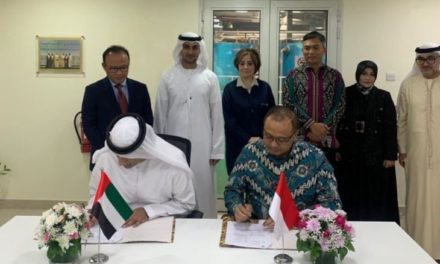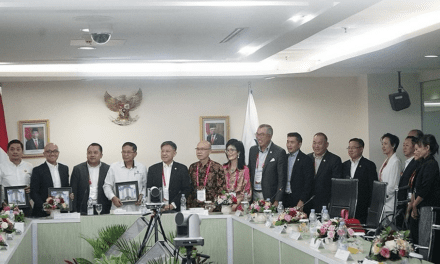Mr. Abdul Hakam Naja emphasizes the importance of bullion banks in revitalizing Indonesia’s Islamic banking sector, enhancing economic growth, and creating a fully integrated gold ecosystem that spans from deposits and investments to trade and refining.

In Jakarta, optimism is growing around the role bullion banks could play in transforming Indonesia’s Islamic banking landscape. Mr. Abdul Hakam Naja, Advisor at the Center of Sharia Economic Development (CSED) within the Institute for Development of Economics and Finance (Indef), believes that bullion banks hold the key to accelerating growth in the sector. His remarks came during the Economic Outlook for Sharia 2025 discussion held on Saturday in Jakarta.
Mr. Hakam expressed that greater utilization of bullion banks by sharia banks is essential for the future. He emphasized that the involvement of bullion banks could drive growth in Islamic banking while simultaneously contributing to the broader economic landscape. By integrating gold resources into financial operations, banks could expand their role beyond holding deposits, incorporating gold directly into their balance sheets.
Bullion banks operate by facilitating banking activities through the use of precious metals, primarily gold. In Indonesia, prominent companies such as PT Pegadaian (Persero), PT Bank Rakyat Indonesia (Persero) Tbk, and PT Bank Syariah Indonesia (Persero) Tbk have already adopted the bullion banking model, paving the way for further expansion.
Mr. Hakam also highlighted that bullion banks could enhance gold-based services by creating an integrated ecosystem that spans from upstream to downstream activities. This integration would encompass deposits, safekeeping, financing, investment, and trade. He pointed out that bullion banks could provide solutions to the stagnation in Islamic banking, allowing individuals who store money or gold at home to entrust their assets to official banking institutions.
A significant portion of Indonesia’s gold refining and trading currently takes place in Singapore, which boasts a well-established bullion banking industry. Mr. Hakam elaborated that Singapore’s bullion banks imported up to 400 tons of gold at their peak, surpassing Indonesia’s annual production of 83 tons in 2023. This contrast, he noted, highlights the need for Indonesia to develop its own bullion banking infrastructure to compete more effectively in the region.
Indonesia is set to establish its bullion bank following the issuance of Financial Services Authority (OJK) Regulation No. 17 of 2024, which governs bullion business operations. Data from the Directorate General of Mineral and Coal at the Ministry of Energy and Mineral Resources (ESDM) revealed that Indonesia produced 83 tons of gold in 2023, securing its position as the sixth-largest gold producer globally.
Mr. Hakam concluded by reiterating that the establishment of bullion banks represents Indonesia’s economic future. Despite falling short of the 106-ton target for gold production in 2023, he emphasized that Indonesia continues to play a significant role in the global gold market.
Source: ANTARA







